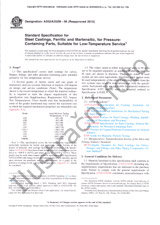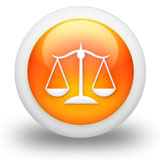Potřebujeme váš souhlas k využití jednotlivých dat, aby se vám mimo jiné mohly ukazovat informace týkající se vašich zájmů. Souhlas udělíte kliknutím na tlačítko „OK“.
ASTM D5577-19
Standard Guide for Techniques to Separate and Identify Contaminants in Recycled Plastics
Přeložit název
NORMA vydána dne 1.4.2019
Informace o normě:
Označení normy: ASTM D5577-19
Datum vydání normy: 1.4.2019
Kód zboží: NS-948634
Počet stran: 6
Přibližná hmotnost: 18 g (0.04 liber)
Země: Americká technická norma
Kategorie: Technické normy ASTM
Kategorie - podobné normy:
Anotace textu normy ASTM D5577-19 :
Keywords:
compression moldings, contaminants, density separations, extrusion, post-consumer plastics, recycled plastics, visual inspection,, ICS Number Code 13.030.50 (Recycling), 83.080.01 (Plastics in general)
Doplňující informace
| Significance and Use | ||||||||||||||||||||||||||||||||||||||||
|
5.1 Recycled plastic materials may contain incompatible plastic or other undesirable contaminants that could affect the processing or quality, or both, of the plastic prepared for reuse. Techniques to separate and identify incompatible plastics, moisture, chemicals, or original product residues, and solid contaminants such as metals, paper, glass, and wood are essential to the processing of recycled plastic materials. 5.2 This guide lists existing ASTM and ISO methods plus currently practiced industrial techniques for identification and classification of contaminants in recycled plastics flake or pellets. |
||||||||||||||||||||||||||||||||||||||||
| 1. Scope | ||||||||||||||||||||||||||||||||||||||||
|
1.1 This guide is intended to provide information on available methods for the separation and classification of contaminants such as moisture, incompatible polymers, metals, adhesives, glass, paper, wood, chemicals, and original-product residues in recycled plastic flakes or pellets. Although no specific methods for identification or characterization of foam products are included, foam products are not excluded from this guide. The methods presented apply to post-consumer plastics. 1.2 For specific procedures existing as ASTM test methods, this guide only lists the appropriate reference. Where no current ASTM standard exists, however, this guide gives procedures for the separation or identification, or both, of specific contaminants. Appendix X1 lists the tests and the specific contaminant addressed by each procedure. 1.3 This guide does not include procedures to quantify the contaminants unless this information is available in referenced ASTM standards. 1.4 This standard does not purport to address all of the safety concerns, if any, associated with its use. It is the responsibility of the user of this standard to establish appropriate safety, health, and environmental practices and determine the applicability of regulatory limitations prior to use. Note 1: There is no known ISO equivalent to this
standard.
1.5 This international standard was developed in accordance with internationally recognized principles on standardization established in the Decision on Principles for the Development of International Standards, Guides and Recommendations issued by the World Trade Organization Technical Barriers to Trade (TBT) Committee. |
||||||||||||||||||||||||||||||||||||||||
| 2. Referenced Documents | ||||||||||||||||||||||||||||||||||||||||
|
Doporučujeme:
Aktualizace zákonů
Chcete mít jistotu o platnosti užívaných předpisů?
Nabízíme Vám řešení, abyste mohli používat stále platné (aktuální) legislativní předpisy.
Chcete vědět více informací? Podívejte se na tuto stránku.




 Cookies
Cookies
